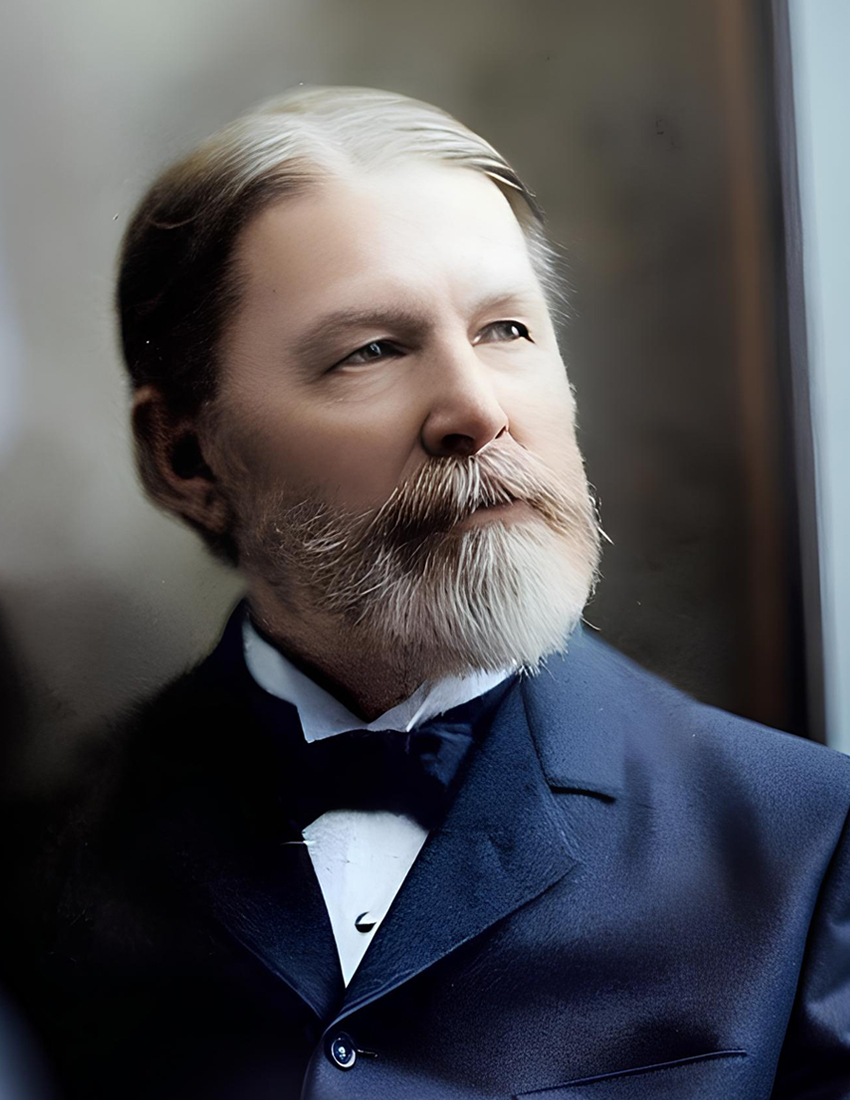Born: March 12, 1826, Philadelphia, PA.
Died: November 25, 1899, Plainfield, NJ.
Buried: Hillside Cemetery, Plainfield, NJ.
Robert Lowry

Hymns by Robert Lowry
Robert Lowry: Capturing Christ’s Victory in Song
Sometimes, the most powerful messages come from unexpected places. Such is the case with Robert Lowry, a man who, despite not dedicating himself fully to the art of songwriting, managed to capture the essence of Christ’s victory over the grave in a truly remarkable way.
Early Life and Education
Born in Philadelphia in 1826, Lowry was a man of many talents. From a young age, he showed a deep commitment to his faith, teaching Sunday school and singing in the church choir. As he grew older, his dedication to excellence became increasingly evident. He excelled in his studies, graduating with the highest honors, and went on to become a respected literary professor and a beloved preacher.
Powerful Preaching and Vivid Imagery
Lowry’s sermons were known for their vivid imagery and ability to inspire. As one biographer noted, “Very few men had greater ability in painting pictures from the imagination. He could thrill an audience with his vivid descriptions, inspiring others with the same thoughts that inspired him.” Despite the significant time and effort he put into crafting his sermons, Lowry still found moments to pursue his love for music.
Passion for Music and Enduring Hymns
Though he considered music to be of secondary importance compared to his preaching, Lowry’s passion for it never waned. In the spare moments he could find, he penned numerous hymns that would go on to become cherished favorites in his congregation and beyond. Songs like “Nothing But the Blood of Jesus,” “I Need Thee Every Hour,” “Shall We Gather at the River?” and “We’re Marching to Zion” are just a few examples of the enduring legacy of Lowry’s musical gifts.
The Birth of “Christ Arose”
But perhaps his most powerful composition came in the spring of 1874, near Easter Sunday. As Lowry read the familiar account of Jesus’ death and resurrection, he was struck anew by the profound significance of this event. Inspired, he put pen to paper, and “Christ Arose” was born – a hymn that captures the triumphant joy of the resurrection in a way few others have.
Offering Our Gifts to God
Lowry’s story reminds us that we don’t need to strive tirelessly in our own strength to bring glory to God. When we offer Him our devotion, no matter how small or seemingly insignificant, He can use it in powerful ways. Lowry may not have had the time to dedicate himself fully to both preaching and songwriting, but God took the little he had to give and multiplied it, inspiring him to write hymns that continue to bless and encourage believers to this day.
As we reflect on the life and legacy of Robert Lowry, may we be inspired to offer our own gifts and passions to God, trusting that He can use them in ways we never imagined. For when we do, we might just find ourselves part of a story far greater than our own – a story of victory, hope, and the unending love of our risen Savior.

